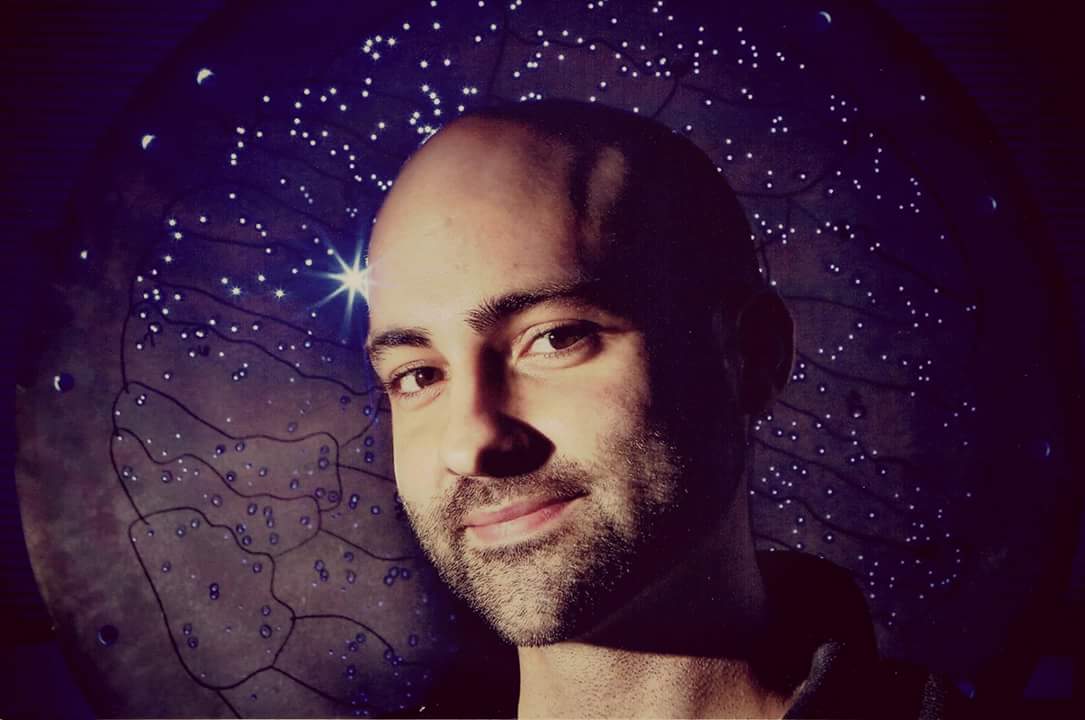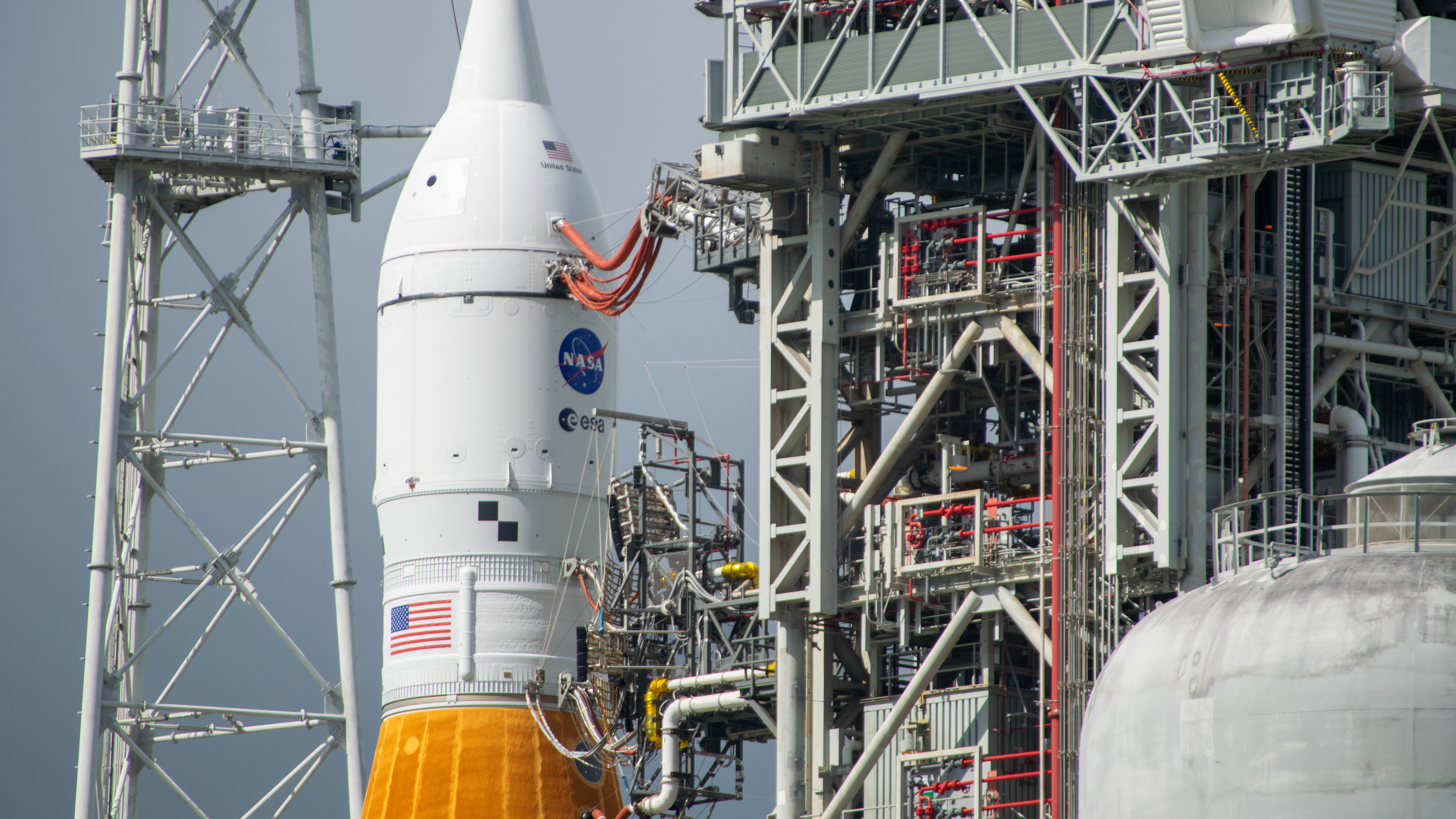Paul M. Sutter is a cosmologist at Johns Hopkins University. A prolific scientist, he has written over 60 academic publications on topics such as the earliest moments of the big bang and the largest objects in the universe. Paul is also an award-winning science communicator. He has authored three critically acclaimed, international bestselling books and has hosted television shows on Discovery, Science Channel, History Channel, and numerous digital outlets. You can find his essays in The New York Times, Scientific American, Nautilus, and more. In addition to regular appearances on NBC News, BBC News, CNN, and The Weather Channel, Paul has developed one of the most popular podcasts in the world and is a globally recognized leader in the intersection of art and science, especially in his role as a United States Cultural Ambassador.
Latest articles by Paul Sutter
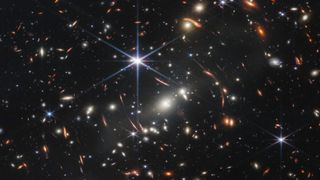
The universe should be packed with tiny galaxies — so where are they?
By Paul Sutter published
There may not be as nearly as many small galaxies in the early universe as astronomers predict there should be, which has big implications for the story of how our universe grew up.
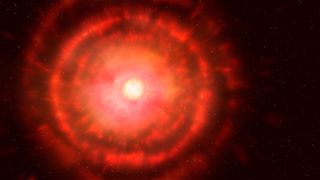
We may be witnessing the messy death of a star in real time
By Paul Sutter published
For over two centuries, we have watched the red giant R Leonis dim and brighten with regularity, but this 'heartbeat' is beginning to speed up near the end of the star's life.

Does physics say that free will doesn't exist?
By Paul Sutter published
At first glance, it seems like our understanding of physics forbids free will.

Dark matter may be made of pieces of giant, exotic objects — and astronomers think they know how to look for them
By Paul Sutter published
Searches for dark matter particles have come up empty so far, driving theorists to get more creative with their ideas.

What old, dying stars teach us about axions as a candidate for dark matter
By Paul Sutter published
The axion could be a contender to explain the mystery of dark matter.

How the 'delayed choice quantum eraser' experiment got us to rethink reality
By Paul Sutter published
Does the universe notice that we're paying attention to a quantum experiment? The answer goes against everything we thought we knew.
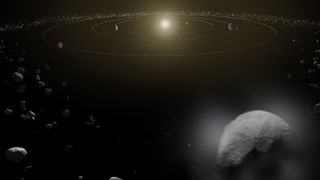
Asteroid belt — What it is, where it is and how it formed
By Nola Taylor Tillman last updated
Reference Most asteroids orbit between Mars and Jupiter in the main asteroid belt. But some space rocks stray out of the main belt and threaten Earth.
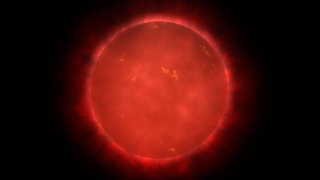
Why is this star so weird? Maybe because it ate one of its own planets
By Paul Sutter published
Astronomers are just beginning to scratch the surface of the complex, and sometimes violent, relationships between planets and their parent stars.
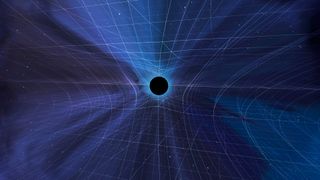
Does the universe have extra dimensions hiding in plain sight?
By Paul Sutter published
While the existence of extra dimensions is a cool idea, it's currently not supported by any evidence
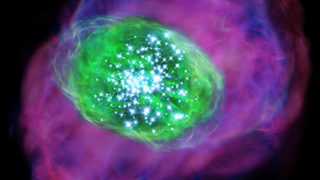
James Webb Space Telescope spots a gassy baby galaxy throwing a tantrum in the early universe
By Paul Sutter published
The astronomers estimate that this galaxy will deplete itself of gas in only a few hundred million years.

Do the cores of dead stars exist forever?
By Paul Sutter published
Regular stars collapse and die once they run out of fuel for their nuclear reactions, but the white dwarfs just sit there, hanging out, for eternity.

What is the weak nuclear force and why is it important?
By Paul Sutter published
The weak nuclear force doesn't play by the normal rules — and, in fact, it breaks one of the biggest rules of all.
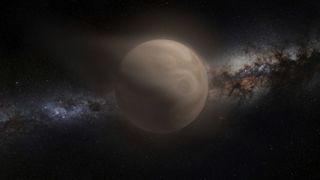
Strange 'puffy' alien world breaks every rule for how planets should behave
By Paul Sutter published
If you think you've met the wildest exoplanet yet, you haven't learned about TOI-4507 b. This strange world breaks almost every known rule for how planets should behave.
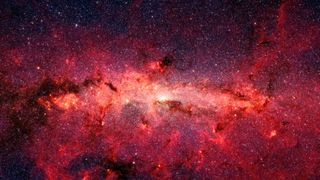
Is the universe infinite, or does it have a limit?
By Paul Sutter published
If the universe is expanding, then what is it expanding into, and what is it expanding from? Where's the edge of the universe, and where is its center?
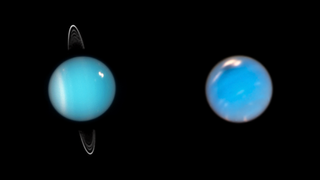
Uranus and Neptune may not be 'ice giants' after all, new research suggests
By Paul Sutter published
We actually know very little about what's going on inside Uranus and Neptune, causing researchers to propose that these planets be called "rocky giants" instead.

How do particle colliders work?
By Paul Sutter published
As the name suggests, particle accelerators involve accelerating subatomic particles to incredibly high speeds and smashing them into tiny targets.

Will the International Space Station be replaced before its fiery death in 2030?
By Paul Sutter published
NASA plans to send the ISS into Earth's atmosphere in 2030, and it has no plans for a replacement — at least, not directly.
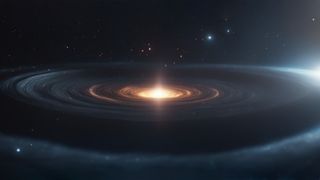
Ripples from the Big Bang could transform our understanding of the universe — and we may be close to detecting them
By Paul Sutter published
It will take the most sensitive instruments ever imagined to reveal ripples from the Big Bang, but they could change our understanding of the entire universe.
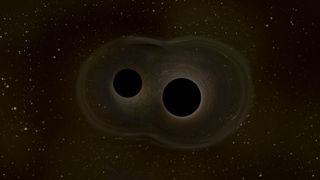
Could black hole mergers finally solve the Hubble tension? Probably not
By Paul Sutter published
Astronomers just ruled out merging black holes as a possible solution to a giant discrepancy plaguing cosmology.

One of the earliest galaxies in the universe was rich in oxygen. Could it mean life evolved earlier than we thought?
By Paul Sutter published
A galaxy in the early universe was rich with oxygen, astronomers have found. The discovery raises questions about how early life could have first appeared in the universe.
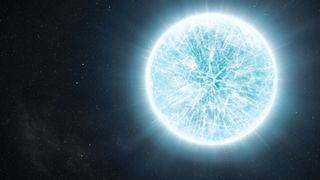
How do the biggest stars in the universe grow so large?
By Paul Sutter published
Some stars in the universe grow to 300 times larger our own sun. But how do they get so big, and how do they sustain their mass?
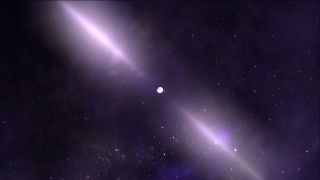
Rapidly spinning dead star's strange 'glitches' are oddly regular
By Paul Sutter published
Ultimately, we do not understand where glitches come from or exactly what's going on inside pulsars.
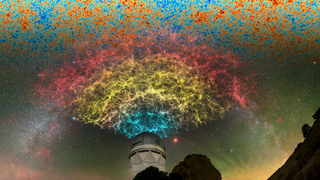
Astronomers calculate that the universe will die in 33 billion years — much sooner than we thought
By Paul Sutter published
The theorists predict that the beginning of the end will be in about 10 billion years — less than the present age of the universe.
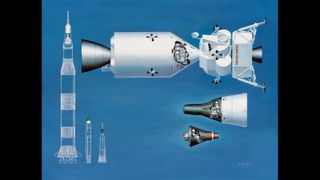
ChatGPT could pilot a spacecraft unexpectedly well, early tests find
By Paul Sutter published
In a recent contest, teams of researchers competed to see who could train an AI model to best pilot a spaceship. The results suggest that an era of autonomous space exploration may be closer than we think.
Breaking space news, the latest updates on rocket launches, skywatching events and more!
